“The first gulp from the glass of natural sciences will make you an atheist, but at the bottom of the glass God is waiting for you.” -Werner Heisenberg (Father of Quantum Physics)

1). THE QUESTION CHRISTIANS CAN’T ANSWER
In preparation for this article I polled a variety of Christians (including six biblically-sound pastors from four different states) asking them this simple question:
Where is heaven?
I specifically wanted to know where heaven was physically located. Below is a sampling of some of the nearly three-dozen answers I received online and in person.
“Beyond death”
“A non-physical place”
“Beyond a spiritual veil”
“Outside of the universe”
“Beyond the edge of time”
“Not in this created realm”
“Beyond the limits of space”
“Billions of lightyears away”
“Outside this box called time and space”
“In a completely different dimension than earth”
“A physical place in space beyond where mankind can travel”
“God is outside of time, so heaven is outside of matter, so it’s everywhere and nowhere”

One person said heaven is not a “physical place” because “a physical body cannot enter a spiritual realm,” and another said heaven “isn’t physically anywhere because it is the dwelling place for spiritual beings.” This particular viewpoint—that heaven is strictly immaterial—presupposes that a spirit can’t occupy a physical dwelling, or that a corporeal body can’t occupy a spiritual dwelling. But we know from Scripture this is not true.
God occupied a physical tabernacle, a physical temple, and the Holy Spirit dwells in physical believers.
Both Elijah and Enoch were physically taken to heaven without dying.
Jesus—who resurrected in His physical body—now sits at the right hand of the Father in heaven.
Two different respondents to my poll even referenced out-of-body experiences, but like the other responses, these didn’t provide an answer to the question of heaven’s physical location.
I received several answers from people who didn’t even attempt to guess, but just admitted they didn’t know. In fact, one respondent (one of the pastors) spent a couple minutes carefully formulating a thoughtful response, but then abruptly paused for several seconds before conceding, “I don’t think I can say where heaven is. I’m gonna say I don’t know.” For a pastor to make such an admission took courage, and I appreciated his candor.
Now let me be clear, I haven’t shared the aforementioned answers as a criticism in any way of those who provided them (after all, until recently I would have answered similarly). I presented these responses to establish with you, the reader, that a majority or professing Christians are unable to answer this question.
Surely I can’t be the only one who sees these answers from Christians as incongruent of a community of people who expect to be spending eternity there. Wouldn’t you think in all of Scripture—in its totality of sixty-six books—God would have told us where heaven is?
The good news is, He did. And that is what I intend to demonstrate in this article.
I won’t be presenting anything novel, nor any new revelation (the canon is closed). I’ll only be pointing you to what’s been there before our eyes the whole time, but we’ve just become proficient at ignoring it, dismissing it, glossing over it, and explaining it away. Today we will put the pieces together to see exactly where the Bible tells us heaven is located.
Are you ready?
2). WHERE GOD DWELLS
I’d be remiss if I didn’t take a moment at the beginning to establish the fact that God dwells in heaven. It should be a foregone conclusion, but I don’t want to thrust any presumptions upon the reader.

The Bible references three distinct heavens. One is where the clouds and birds call home, the other is where the sun, moon, and stars are located, and the other is where God resides. It’s this third heaven—the actual dwelling place of God—that’s the focus of this article.
“Yahweh looks from heaven; He sees all the sons of men; from the place of His habitation He gazes on all the inhabitants of the earth.” -Psalm 33:13-14
The Bible doesn’t tell us where God dwelt before He formed the heavens and the earth (Genesis 1:1), but we know that since the creation, heaven is God’s dwelling place (2 Chronicles 30:27), and that God sits on His throne in heaven (Psalm 2:4, Psalm 11:4, Psalm 102:19, Psalm 103:19, Matthew 23:22, Revelation 4:1-2). And if there are any further doubts, the opening line of The Lord’s Prayer should erase all lingering ambiguity: “Our Father who is in Heaven, hallowed be Your name” (Matthew 6:9).
3). HEAVEN ABOVE, EARTH BELOW
Next, before we get to heaven’s specific location, let’s establish what the Scriptures say about its general location.
The Bible repeatedly tells us where heaven and earth are relationally to one another. Of the abundance of biblical texts that unequivocally reveal heaven is above and earth is below, here are just a few examples.
God—and at least one other member of the Trinity—descended to the earth below from heaven above (Genesis 11:7).
We are commanded to make no likeness of what is in heaven above or on the earth beneath (Exodus 20:4).
Elijah’s chariot of fire took him up to heaven (2 Kings 2:11).
God is in the height of heaven (Job 22:12).
God looks down from heaven upon men (Psalm 14:2).
The heavens are higher than the earth (Isaiah 55:9).
The heavens are above the earth (Psalm 103:11).
Reaching heaven requires ascension (Amos 9:2).
James and John wanted to call down fire from heaven (Luke 9:54).
Jesus watched Satan fall from heaven like lightening (Luke 10:18).
Jesus ascended into heaven (Luke 24:51, Acts 1:9-11).
The Lord will descend from heaven (1 Thessalonians 4:16).
The two witnesses in Revelation are told by a voice “from heaven” to “come up here,” and then they went upward into heaven (Revelation 11:12).
The Apostle John was told to “come up here” where he beheld many things in heaven, including God’s throne, a star falling from heaven to earth, and an angel “coming down out of heaven” (Revelation 4:1-2, Revelation 9:1, Revelation 10:1).
In some cases the Bible employs figurative language that drives home this fact to the reader. Nahum 1:3 is a good example of this when it says “clouds are the dust beneath His feet.”
And we even affirm God is above and we are below every time we recite or sing the doxology.
Praise God, from whom all blessings flow;
Praise Him, all creatures here below;
Praise Him above, ye heav'nly host;
Praise Father, Son, and Holy Ghost.
Amen.
Now that we’ve established the baseline that God is in heaven—and heaven is above the earth—let’s continue building upon this foundation.
4). THE FIRMAMENT
The Bible opens with a description of the creation story that’s become so familiar to us we often miss its finer details. In the very first sentence of the very first chapter of the very first book of the Bible, we’re told God created heaven and earth. And just five verses later, the Bible tells us God separated the two with an expansive canopy called the firmament.
Those reading the King James translation (KJV) will notice the word firmament appears fifteen times in their Bibles, with the first five occurrences appearing in the span of just three verses (Genesis 1:6-8).
“And God said, ‘Let there be a firmament in the midst of the waters, and let it divide the waters from the waters.’ And God made the firmament, and divided the waters which were under the firmament from the waters which were above the firmament: and it was so. And God called the firmament Heaven. And the evening and the morning were the second day.”
The Hebrew word from which we get the word firmament, is rãqîa, and it is translated as a solid vault of heaven that supports the waters above.
Other word-for-word translations, like the New American Standard Bible (NASB) and the Legacy Standard Bible (LSB), both translate the Hebrew word rãqîa as “expanse.” However, both of these translations properly footnote the word expanse as literally “firmament.” The English Standard translation (ESV) also employs the use of the word expanse, and its footnote calls this expanse a “canopy.”
The prophet Amos described the firmament (Amos 9:6) when he said God “founded His vaulted dome over the earth” (NASB and LSB).
The Hebrew word used in Amos 9:6 is aguddâ, which is translated as vault or firmament, “binding earth to the heavens.”
The Complete Jewish Bible (CJB) translates the firmament in Genesis 1:6-8 as a dome.
5). WHY DID GOD CREATE THE FIRMAMENT?
Not only did God tell us He created the firmament, but He provided details as to its purpose. According to Genesis 1:14-18, this rãqîa (firmament, expanse, canopy, dome) not only serves to separate the waters above from the waters below, but it’s also where God placed the sun, moon, and stars for the purpose of providing light upon the earth, and to mark signs, seasons, days, and years.
“And God said, ‘Let there be lights in the firmament of the heaven to divide the day from the night; and let them be for signs, and for seasons, and for days, and years: and let them be for lights in the firmament of the heaven to give light upon the earth:’ and it was so. And God made two great lights; the greater light to rule the day, and the lesser light to rule the night: he made the stars also. And God set them in the firmament of the heaven to give light upon the earth, and to rule over the day and over the night, and to divide the light from the darkness: and God saw that it was good.”
And King David adds further corroboration with a visual description of the firmament when he tells us in Psalm 19:4, the heavens are the tabernacle (or tent) for the sun.
Another purpose of the firmament is that it facilitates the process of evaporation, condensation, and precipitation as depicted in Job 36:27-28.
“For He draws up the drops of water, they distill rain from the mist, which the clouds pour down, they drip upon man abundantly.”
The hydrological cycle is only possible in a closed system.
Once that container (closed system) is gone, the hydrological cycle will stop cycling.
You can read about David Latimer’s terrarium from this article which contains this telling quote:
“It is creating a self-sustaining ecosystem. It’s a stunning illustration of how nature can preserve itself.”
Of course, we know “nature” is not the marvel here, for “nature” could not create itself. God created this self-sustaining system ex nihilo, and His firmament facilitates its continued preservation.
6). WHAT IS THE FIRMAMENT MADE OF?
The Scriptures don’t provide the exact composition of the firmament, however, we are given descriptions of what it’s like, which gives us a better understanding of its substance.
The NASB, LSB, and ESV all tell us in Proverbs 8:28 that the sky above us is “firm.” Job 37:18 also gives us a telling description of the sky.
KJV:
“strong, and as a molten looking glass”
ESV:
“hard as a cast metal mirror”
LSB and NASB:
“strong as a molten mirror”
The book of Ezekiel provides an even greater description of this canopy above us (Ezekiel 1:22-28).
KJV:
“the likeness of the firmament . . . was the color of the terrible crystal, stretched forth over their heads above.”
LSB:
“there was something with the likeness of an expanse, like the awesome gleam of crystal spread out over their heads above.”
NASB:
“there was something like an expanse, like the awesome gleam of crystal spread out over their heads.”
ESV:
“the likeness of an expanse, shining like awe-inspiring crystal, spread out above their heads.”
The Jewish Historian Flavius Josephus even commented on the composition of the firmament, referring to it as “crystalline.”
During this same vision of heaven, Ezekiel also heard “a voice from the firmament” and saw God’s throne.
“And there was a voice from the firmament that was over their heads, when they stood, and had let down their wings. And above the firmament that was over their heads was the likeness of a throne, as the appearance of a sapphire stone: and upon the likeness of the throne was the likeness as the appearance of a man above upon it.”
Did you notice the use of the word “sapphire” when Ezekiel was referring to God’s throne? This is translated in the NASB as lapis lazuli, which is a vibrant blue.
Like the sky.

Interestingly, in another appearance earlier in Scripture, this blue under God’s feet is described as being like “a paved work of a sapphire stone” (KJV) as clear as heaven (Exodus 24:10).
LSB and NASB:
“And they saw the God of Israel; and under His feet there appeared to be a pavement of sapphire, as clear as the sky itself.”
ESV:
“There was under his feet as it were a pavement of sapphire stone, like the very heaven for clearness.”
Ezekiel’s description of the firmament isn’t an isolated occurrence in Scripture, as the Apostle John had a comparable experience. In Revelation 4:1-6, John sees a door open in heaven and hears a voice telling him to come up there. Similar to Ezekiel, John beheld many things, including God’s throne, but pay particular attention to this familiar description by John.
“And before the throne there was something like a sea of glass, like crystal.”
The John MacArthur commentary says the following about this sea of glass described in Revelation four: “There is no sea in heaven, but crystal pavement that serves as the floor of God’s throne stretched out like a great, glistening sea.”
Later, in Revelation 15:2, the Apostle John mentions this sea of glass again.
“Then I saw something like a sea of glass mixed with fire, and those who have overcome the beast and his image and the number of his name, standing on the sea of glass, having harps of God.”
The John MacArthur commentary has this to say about the sea of glass in Revelation fifteen: “God’s heavenly throne sits on a transparent crystal platform or pavement.”
7). BUT DIDN’T THE FIRMAMENT CEASE TO EXIST AFTER THE FLOOD?
It’s appropriate to answer this question with a question.
Where does the Bible say that?

In spite of God creating the firmament to separate the waters above from the waters below (Genesis 1:6-8), some will argue that the firmament—and the waters above—went away in Noah’s time after the great flood. Considering the firmament was also created as a dwelling place for the sun, moon, and stars (Genesis 1:14-18, Psalm 19:1-4), it stands to reason that if we still have the sun, moon, and stars, we still have the firmament.
I know this reasoning alone will not be enough to sway proponents of the disappearing firmament theory, so let’s see what else Scripture has to say about the matter.
During the judgment of the earth in Noah’s time (Genesis 7:11), God not only sent a deluge of rain, He opened the “fountains of the great deep” and the “windows of heaven” or “floodgates of the sky” (LSB and NASB).
The Scripture makes a clear distinction that these were three separate sources of water simultaneously contributing to the judgment of mankind.
These three distinct conduits allowed water from beneath the earth to spew upward in addition to causing the water in the clouds and the water above the firmament to fall down upon the earth. And when God’s judgment concluded (Genesis 8:2), not only was the rain stopped and the “fountains of the great deep” shut, but the “windows of heaven” were closed.
Not done away with.
Not dismantled.
Not removed.
Closed.
Don’t gloss over this fact. Pause and think about it.
Why would God need to close something that no longer existed? Would you need to close the door or window of a house that burned to the ground?
If the firmament went away after the flood, then why does the prophet Ezekiel later tell us “the heavens were opened” (Ezekiel 1:1)? Why are we told at Jesus’ baptism that “the heavens were opened” (Matthew 13:16-17)? Why does Stephen look up and say “the heavens opened up” just before his martyrdom where he saw “the Son of Man sitting at the right hand of God” (Acts 7:55-56)? Why does the apostle John tell us he saw the heavens opening (Revelation 19:11), a door into heaven opening (Revelation 4:1), and that the “sky was split apart like a scroll when it is rolled up” revealing not only “the presence of Him who sits on the throne” but also “the Lamb” (Revelation 6:14-16)?
At the conclusion of His judgment of the earth, God restrained the rain clouds, shut up the fountains of the deep, and closed the windows of heaven. If the firmament and the waters above the firmament ceased to exist, there would be no reason to close the windows of this protective canopy. They would no longer exist, and there’d be no reason for God to tell us He closed them.
Restraining, shutting, and closing off those sources of water was only necessary if those sources of water were still contributing to the flood at the conclusion of God’s judgment.
Once you understand the firmament is still holding back these waters, then God’s promise to Noah, his family, and their progeny (Genesis 9:11-13) will become far more meaningful to you because—besides rain—Noah and his descendants understood there was still enough water above them to flood the earth, and both the ground and “windows of heaven” could be opened at any time.
God’s promise to never flood the earth again is far more significant with the constant and imminent threat of water looming just above the heads of mankind. This made the rainbow—the visible reminder of God’s promise—so much more precious in the sight of Noah and his family, and it should be to us, too.

8). THE FIRMAMENT IN THE POSTDILUVIAN WORLD
The Bible not only reveals to us the existence of the firmament before the flood (antediluvian), but the Bible also confirms the presence of the firmament after the flood (postdiluvian).
Over a thousand years after Noah’s flood, King David directed our attention to the firmament in Psalm 19:1.
“The heavens declare the glory of God; and the firmament sheweth his handywork.”
Do you remember earlier when Amos told us God “founded His vaulted dome over the earth” (Amos 9:2)? That was also written after the flood, sometime in the mid 700s BC.
And do you remember the aforementioned description by Ezekiel of God’s throne in heaven, where Ezekiel saw the firmament? That was written sometime between 593 BC and 565 BC—about 1,500 years post flood.
The prophet Daniel, writing between 540 BC and 530 BC, spoke of the firmament, referring to it as an example for comparison (Daniel 12:3).
“And they that be wise shall shine as the brightness of the firmament; and they that turn many to righteousness as the stars for ever and ever.”
In addition to the windows of heaven being referred to in the present tense in 8th Century BC by the prophet Isaiah (Isaiah 24:18), he also provided us with an insightful description of God’s physical location in relation to earth (Isaiah 66:1).
“Thus says Yahweh, ‘Heaven is My throne, and the earth is the footstool of My feet.’”
This verse from Isaiah is reiterated in the New Testament when it’s quoted by both Stephen (Acts 7:49) and our Lord during His sermon on the mount (Matthew 5:34-35).
But this is not all Isaiah revealed to us (Isaiah 40:22).
“It is He who sits above the circle of the earth, and its inhabitants are like grasshoppers, who stretches out the heavens like a curtain and spreads them out like a tent to dwell in.”
Did you notice Isaiah’s reference to the firmament in that verse? God “stretches out the heavens like a curtain.” Isaiah even emphasized this point by declaring God spread out the heavens “like a tent to dwell in” just like when King David revealed the heavens are the tent for the sun (Psalm 19:4).
But did you also catch what Isaiah said in the first part of that verse? He revealed to us (with zero ambiguity) that God spatially resides above the earth.
Can the Scriptures be any more clear?
“The world dwarfs us all, but God dwarfs the world. The world is His footstool, above which He sits secure.” -J.I. Packer

9). BUT DOES THE FIRMAMENT STILL EXIST TODAY?
One has to admit, the canopy over God’s creation is an odd thing for Isaiah, Ezekiel, Amos, David, and Daniel to contemporaneously keep drawing attention to if it ceased to exist long before any of these men were born.
But what about today?
In Psalm 148:1-6, the Psalmist declares that several objects of creation praise God. Some of these objects of creation include angels, the sun, the moon, and the stars. Then the Psalmist includes the following, beginning in verse four.
“Praise Him, heavens of heavens, and the waters that are above the heavens! Let them praise the name of Yahweh, for He commanded and they were created. He caused them to stand forever and ever; He gave a statute and it will never pass away. He has made a decree which will not pass away.”
Even though this Psalmist lived in the postdiluvian world of approximately 1,000 BC, he was still talking about “the waters that are above the heavens.” But did you catch the specifically important detail in that text?
The Psalmist tells us that all those aforementioned objects of creation, which includes the “waters that are above the heavens,” will “stand forever and ever.”
Don’t gloss over that.
“Forever and ever.”
Selah.

10). ARE THERE ANY EXTRA-BIBLICAL EVIDENCES THAT SUPPORT THE CURRENT EXISTENCE OF THE FIRMAMENT?
As we saw earlier, the hydrological cycle only works in a closed environment. But do you know what else is only possible in a closed environment?
A pressurized atmosphere next to a vacuum.
It’s impossible to have a pressurized atmosphere next to a vacuum unless it’s in a container. This is an observable, testable, repeatable fact (the very basis of “science”), and all the tossed word salads in the world won’t change this. Even artificial intelligence understands this.
“The Law of Thermodynamics prohibit a pressurized atmosphere from coexisting with a vacuum without a barrier. As a result, the earth’s atmosphere must be enclosed in a container in order to maintain its integrity along with the vacuum of outer space.” -Alexa
Are you aware of the phenomenon known as the sun dog? It’s observed when the sun’s rays are reflected through a dome.
This phenomenon, also known as the three suns phenomenon and a parhelion, can be simulated using a transparent dome.
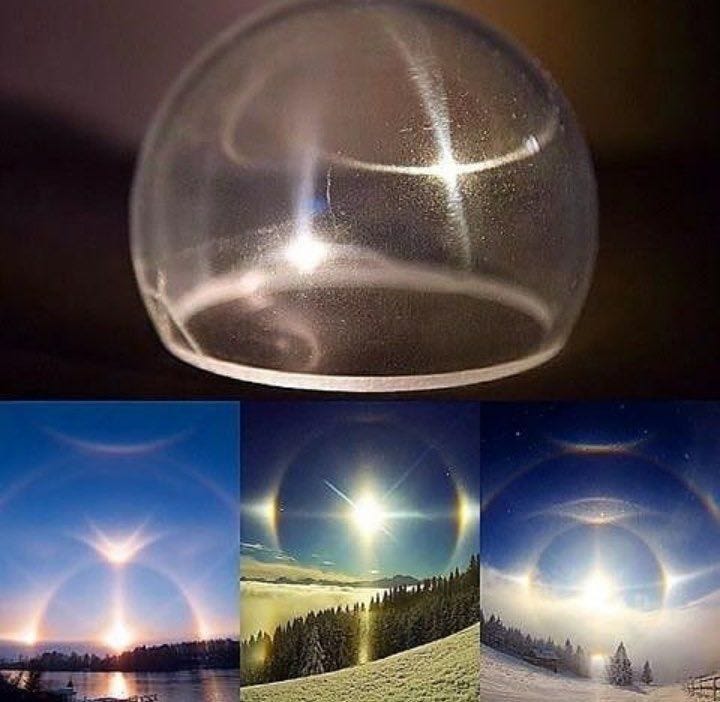
Have you ever watched video of the civilian-launched Go Fast Rocket?
Launched from New Mexico on May 17, 2004, it ascended approximately 72 miles before abruptly striking something. Whatever it struck immediately slowed the rocket, amazingly absorbing its impact without causing any visible damage. And if you’ve ever done underwater video recording, the audio sounds eerily similar to submersion in liquid. You can watch the full video here, or the abbreviated video here, and judge for yourself.
Have you seen the amazing videos and pictures of Space X rockets skimming across the sky?
They put on a brilliant display as they skip across the firmament, oftentimes including visual similarities to a boat skipping across the ocean.
Have you seen what stars really look like when viewed through superzoom high-resolution cameras like the Nikon P900 (or the Nikon P1000 which is called “the greatest-zooming bridge camera available”)?
Using this incredible camera technology (instead of the CGI we’re commonly shown) we can see the stars shimmer as if they’re in or behind water. Check it out for yourself, the videos are amazing.
On May 27, 1931, using a hydrogen balloon and a pressurized capsule, Swiss explorer, physicist, and inventor, Auguste Piccard, was the first known man to enter earth’s stratosphere. Later, in his book Earth, Sky, and Sea, he identified the sun as “the stratospheric sun.” It must not be overlooked that the stratosphere is said to reach up to 31 miles above the earth’s surface.

This should bring to mind Genesis 1:14-18 where God said He placed the sun, moon, and stars “in” the firmament, and it should also bring to mind (again) when King David called the firmament a tent for the sun, where it runs its course like a circuit (Psalm 19:1–6).
Of interesting note, the 2016 Hennessy commercial honoring Auguste Piccard and his son, Jacques Piccard, was a soft disclosure of earth’s protective canopy, as it shows Auguste bursting through the firmament into the waters above.
“From the moment of using rocket devices, a great new era will begin in astronomy: the epoch of the more intensive study of the firmament.” -Konstantin Tsiolkovsky (Father of Russian Astronautics)
11). PUTTING THE PIECES TOGETHER
We established the firmament was created by God as a home for the sun, moon, and stars (Genesis 1:14-16, Psalm 19:4), as well as serving as a “strong” (Job 37:18) and “firm” (Proverbs 8:28) protective “dome” over the earth (Amos 9:6).
We also discovered the firmament was “stretched” out and “spread” over the top of the earth like a tent (Job 9:8, Ezekiel 1:22, Isaiah 40:22, Isaiah 42:5, Isaiah 44:24, Jeremiah 10:12, Jeremiah 51:15).
We learned the windows of this firmament were opened to commence the great flood (Genesis 7:11), then were later closed at the conclusion of the flood (Genesis 8:2).
We demonstrated how the firmament was still being referenced in the present tense by later authors of the Bible, including the Psalmists who directed our attention to the handywork of the firmament in God’s glorious creation (Psalm 19:1), and who declared that even the “waters above the heavens” praise God (Psalm 148:4).
And finally, we saw how both John and Ezekiel witnessed God’s throne in heaven (Revelation 4:1–6, 15:2, Ezekiel 1:22–28) surrounded by “a sea of glass, like crystal” that Ezekiel told us was the firmament.
All of these biblical texts are referencing the protective canopy that was formed over the earth on the second day of creation (Genesis 1:6-7), which has remained throughout the ages (Jeremiah 10:13, Jeremiah 51:16, Daniel 12:3), which will be present at the end of the age (Revelation 4:6), and which will “stand forever and ever” (Psalm 148:4-6).
When you put all the pieces together, how can you not help but praise the God of this glorious creation where He dwells (Psalm 150:1)?
KJV:
“Praise ye the Lord. Praise God in His sanctuary: praise Him in the firmament of His power.”
ESV:
“Praise the Lord! Praise God in His sanctuary; praise Him in His mighty heavens.”
LSB:
“Praise Yah! Praise God in His sanctuary; praise Him in His mighty expanse.”
NASB:
“Praise the Lord! Praise God in His sanctuary; praise Him in His mighty expanse.”
12). ONCE YOU UNDERSTAND IT
Heaven’s true location utterly destroys both the Big Bang and evolutionary theories. It also eviscerates all those obscure space cults, including the more popular ones like Scientology and Mormonism, because true biblical earth cosmology means no Xenu and no Kolob.
Once you understand where heaven is you’ll begin to understand true biblical cosmology, and so much more of the Bible will begin to make sense to you. Additionally, it will liberate you from the burden of constantly performing mental gymnastics to conjure up wild speculations to explain away simple, clear texts.
You’ll understand why all references to heaven are up, and why the earth is described as God’s footstool (Isaiah 66:1).
You’ll understand why we’re told God “walks on the vault of heaven” (Job 22:14).
You’ll understand why God “opened the doors of heaven” to rain down manna upon the Israelites to eat (Psalm 78:23-24).
You’ll understand why the Bible tells us there is a “tumult of waters in the heavens” when God speaks (Jeremiah 10:13, Jeremiah 51:16).
You’ll understand why the Bible makes a postdiluvian distinction between water coming from the clouds and water coming from “the heavens” (Judges 5:4).
You’ll understand the mystery of how a star in the sky “stood over” the exact location of the young Jesus, serving to guide the magi to the house (Matthew 2:9-10).
You’ll understand how stars can “fall from heaven” (Matthew 24:29) to the earth like figs falling from a tree (Revelation 6:13).
You’ll understand how the sun’s shadow moved backwards (Isaiah 38:7-8).
You’ll understand how the sun and moon “stood still” (Habakkuk 3:11), why it was also necessary for the moon to do so, and how it was possible for both of them to stop precisely over the specific locations of Gibeon and the valley of Aijalon (Joshua 10:12–14).
You’ll understand why the Tower of Babel was so significant (Genesis 11:4-8), and why the people’s endeavor to reach heaven was a legitimate concern, prompting God’s intervention by putting an end to its construction. (This would have been a non-sequitur if heaven was “beyond the edge of time,” or “outside of the universe,” or “not in this created realm.”)
You’ll understand why the Bible speaks of the “clouds of heaven” (Daniel 7:13), why it declares the clouds are God’s hiding place (Job 22:14), and why the clouds are described as the dust of God’s feet (Nahum 1:3).
You’ll understand why Jesus ascended into the clouds to be taken up into heaven (Acts 1:9-11), how we’ll see Him coming with “the clouds of heaven” (Matthew 26:64, Mark 14:62), and how every eye will see Him when He returns on the clouds (Revelation 1:7).
You’ll understand why God is referred to as the Most High (Psalm 83:18) over all the earth. (He is called holy, because He is holy. He is called merciful, because He is merciful. He is called love, because He is love. And He is called the Most High, because He is the Most High.)
You’ll understand why Satan’s attempt to usurp God to become like “the Most High” required him to ascend to heaven above the heights of the clouds in an effort to raise his own throne “above the stars of God” (Isaiah 14:12-14).
You’ll understand why Satan and his angels (Revelation 12:7-9) were thrown “down to the earth” from heaven (not hurled through a spiritual veil, not teleported from another dimension, and not cast across an ever-expanding vacuum of space from a billion lightyears away).
When you come to finally understand true biblical cosmology, you’ll have a far greater appreciation for Paul’s warning that those who see God’s creation, but still reject Him, will be without excuse (Romans 1:20).
“For since the creation of the world His invisible attributes, both His eternal power and divine nature, have been clearly seen, being understood through what has been made so that they are without excuse.”
13). DO YOUR OWN HOMEWORK AND WEIGH THE EVIDENCE
“It is usually considered good practice to examine a thing for one’s self before echoing the vulgar ridicule of it.” -J. Gresham Machen
When faced with the question of where heaven is, doesn’t it concern you that most Christians (maybe even yourself) are bereft of a concrete answer from the Scriptures?
Critics outside the Christian faith may contemptuously scoff that it’s shameful Christians can’t articulate the location of the place they expect to spend eternity in. Although such criticism is valid, I can’t discount how our collective societal upbringing, relentless indoctrination, and government education have heavily influenced our thinking—and is the direct causation of our ignorance in this matter.
Further, I posit that when it comes to the firmament (and the waters above the firmament), the average Christian falls into the error of eisegesis because they’re trying to make the Scriptures fit the worldview that’s been spoon fed to us our whole lives (i.e. the firmament went away, it never existed to begin with, the Bible didn’t real mean what it said, etc.).
This is why we find ourselves speculating about heaven’s location, mystifying it, allegorizing it, and convoluting it with ambiguous generalizations containing a disjointed tapestry of complex contradictions which complicates, obscures, and obfuscates what was once a very simple axiom accepted by the world (including God’s own people) since the dawn of creation.
The true biblical answer to heaven’s location is so simple (the very epitome of Occam’s Razor) it’s a wonder—and an indictment—that we abandoned it so quickly just because the gatekeepers of “knowledge” in white lab coats claimed they checked and God was not there.
The Apostle Paul warned about such things (1 Timothy 6:20) when he cautioned Timothy to avoid “opposing arguments of what is falsely called knowledge” (LSB, NASB, ESV).
We accept Paul’s admonition about such people “who profess to be wise” (Romans 1:22) when it comes to Darwinism and the Big Bang—rightly rejecting their attempts to hide God from us in their evolution—so why do we gleefully laud these same vicars of scientism as they attempt to hide God from us in their cosmology?
Instead of feeling shame for our lack of understanding of where heaven is, I suggest we should only feel ashamed if—after we’ve been shown the truth—we still choose to cling to our former indoctrination, believing the lies of fallible men and their worldly wisdom, over the plain truth of God’s eternal word. Because not knowing the truth isn’t nearly as shameful as not wanting to know the truth.
“Never, never be ashamed of what God’s word teaches on any topic, saints. Listen to me, don’t be ashamed. Just because society has . . . done their best to ingrain an ideology into your noggin over certain subjects, does not mean that we as Christians have to agree with them or accept them. And for certain, we do not have to indoctrinate our children into those things.” -Pastor Daniel Michael
Let’s be brutally honest here. There is no Scriptural support for Christendom’s pet theory that the firmament simply vanished after the great flood. Those who continue to believe this theory are not only contradicting the biblical authors who repeatedly spoke of its post-flood existence, but they’re standing in direct contradiction to the biblical text, especially when the Bible tells us that the waters above will “stand forever and ever” (Psalm 148:4-6).
“God’s throne is above the firmament. . . . To say that the area above the firmament is, instead, an empty and hostile vacuum of space is to dethrone God.” - Edward Hendrie
If you throw out the firmament, you throw out the very foundation of heaven itself, that “sea of glass” (Ezekiel 1:22-28, Revelation 4:1-6, Revelation 15:2) from which God looks down upon us (Psalm 53:2, Isaiah 40:22). It means the waters above the firmament are gone (Psalm 148:4-6), the necessary enclosure for the hydrological cycle is gone (Job 36:27-28), the home for the sun, moon, and stars is gone (Genesis 1:14-18), and even heaven itself is gone (Genesis 1:8).
“And God called the firmament heaven.”
When weighed against the Scriptures, the vanishing firmament theory is exposed for what it is: pure conjecture born from a desire to conform the Scriptures to the world’s “science falsely so called” (1 Timothy 6:20 KJV). Thus, the burden of proof for the firmament’s alleged disappearance rests solely on those who believe, teach, and spread this untenable theory.
14). CONCLUSION
“There is a principle which is a bar against all information, which is proof against all argument, and which cannot fail to keep a man in everlasting ignorance. This principle is, contempt prior to examination.” -William H. Poole
Sometimes people ask why any of this matters.
The better question is, how does it not matter? If truth is important to you, that should be enough of a reason. Truth is all that should matter. When it comes to that grand fountain of truth, you should drink deeply of it, not just wash your hands in it.
But if you needed more of a reason than that, then consider the fact that having a correct understanding of God’s creation matters because (as we’ve already seen) the heavens proclaim God’s glory, and the firmament reveals to us the work of His hands (Psalm 19:1).
But if you’ve rejected what’s been presented here, and you refuse to do your own research, then it would behoove you to take a moment to self-reflect and ask yourself why?
Why do you actively resist these truths? What has influenced your worldview so much that you’re willing to reject the Scripture’s perspicuous teaching of heaven’s location—where a spatially close, personal God sits above His creation—in favor of a God who is so physically distant we have to pick our favorite theory to explain where we think He might be?
If you’re being completely honest with yourself, you’ll have to admit you didn’t come to your speculative, mystical, or allegorical views of heaven from Sola Scriptura.
Case in point: after this article was shared on social media, one person responded by telling me they don’t agree with it, were not convinced by it, and even said that I probably misinterpreted Scripture.
I afforded this person the opportunity to show me where I was in error, but they refused to do so. However, when queried where they thought heaven was located, they responded with this doozy.
It was at that point I realized five things:
The irony of the article was lost on this person.
It was apparent I would not be able to reason with them.
It’s impossible to convince someone of that which they refuse to see.
Continuing to try would be a futile endeavor.
My time would be far better spent speaking with those willing to learn the truth.
I then ended our correspondence thusly.
For everyone else, I make an appeal to you that you re-examine what you’ve been taught about this subject—even from well-intentioned people. Lean not on speculation, theory, and popular consensus (truth rarely wins popularity contests), but on the Scriptures themselves.
“Condemnation without investigation is the admission of your indoctrination.” -David Weiss
But don’t just take my word for any of what’s been presented here, because I’m not above error (and the fidelity of the Scriptures is of the utmost importance). Do your own homework and seek the truth, because as Christians we should be able to coherently articulate where heaven is located (the Bible gives us the answer after all).
And as you research this topic, it will be important for you to apply the same standard as if this was a criminal court case. It’s not usually just one piece of evidence that convicts a person at trial, it’s the preponderance of the evidence. And it’s not just one text of Scripture that proves heaven’s location, it’s the mounting totality of all the biblical texts—some of which have been presented here for you in this article.
So use your God-given senses of observation, use God’s eternal, unchanging word, and use actual observable, testable, repeatable science to form your conclusion.
Our God is a God of order, and upon His glorious creation the Great Exchange took place, where man’s sins were placed on God’s Son, and His Son’s righteousness was imputed to us (2 Corinthians 5:21). The Father presided over that greatest of all events in human history from his throne, just above His creation—not from some ambiguous dimension, some vague realm, or untold billions of light-years away in an impersonal, ever-expanding black vacuum. God is not distant, He sits directly above us just like He told us throughout His Scriptures.
Once you understand this, it will change your world—literally and figuratively.
“To you I lift up my eyes, O You who are enthroned in the heavens!” -Psalm 123:1
J.L. Pattison is a freelance writer and author of four contemporary speculative fiction books. He’s written for such publications as Liberation Day, Predict, The Startup, The Writing Cooperative, and The Writer’s Sanctuary. His articles have been featured at Mere Liberty, Doorway Publishing, and on Wretched TV. You can find out more at JLPattison.com.
Before you go, if you want to show your appreciation for this article—and encourage J.L. Pattison to produce more content like this—please consider buying him a coffee.





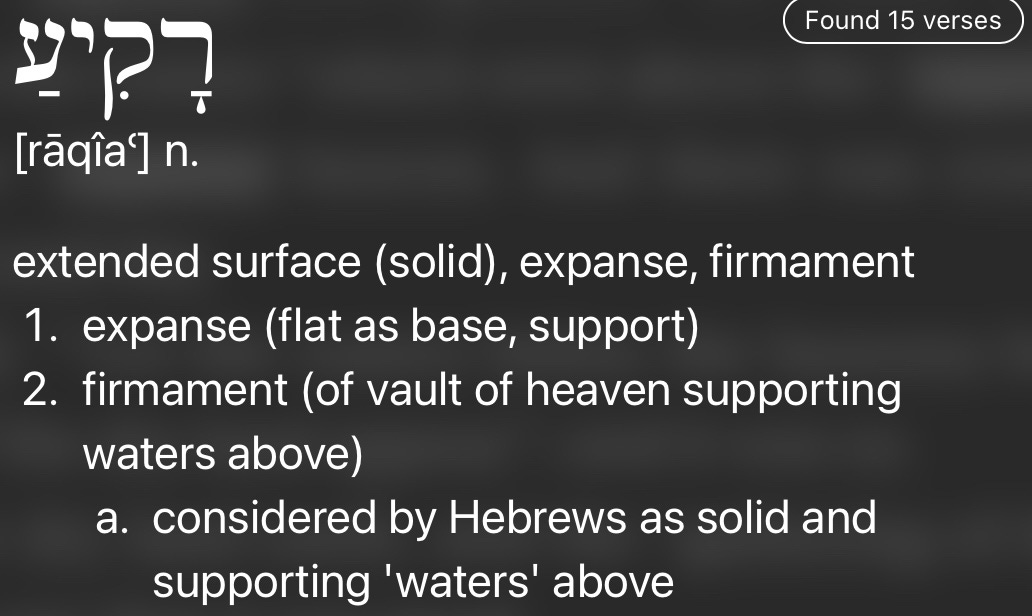
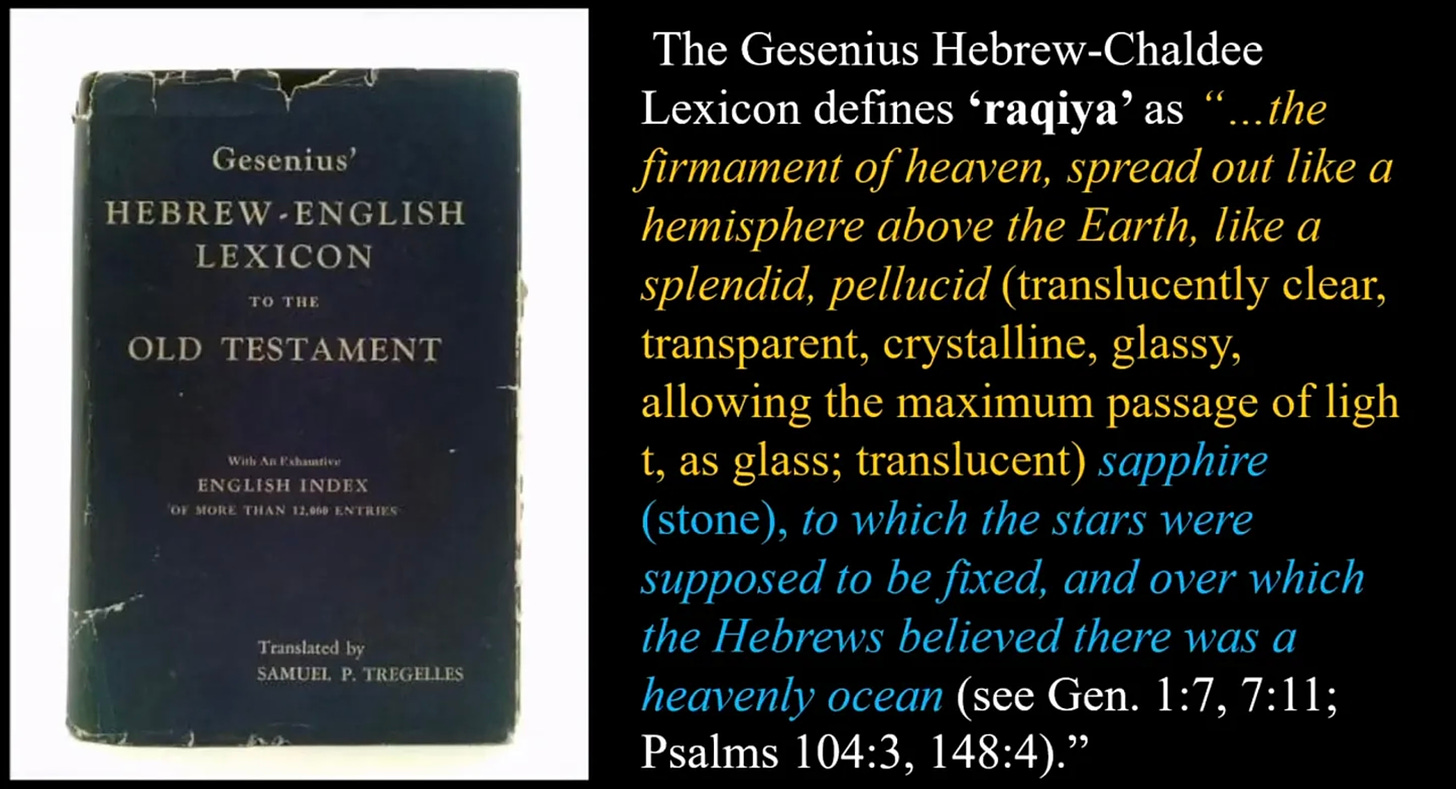
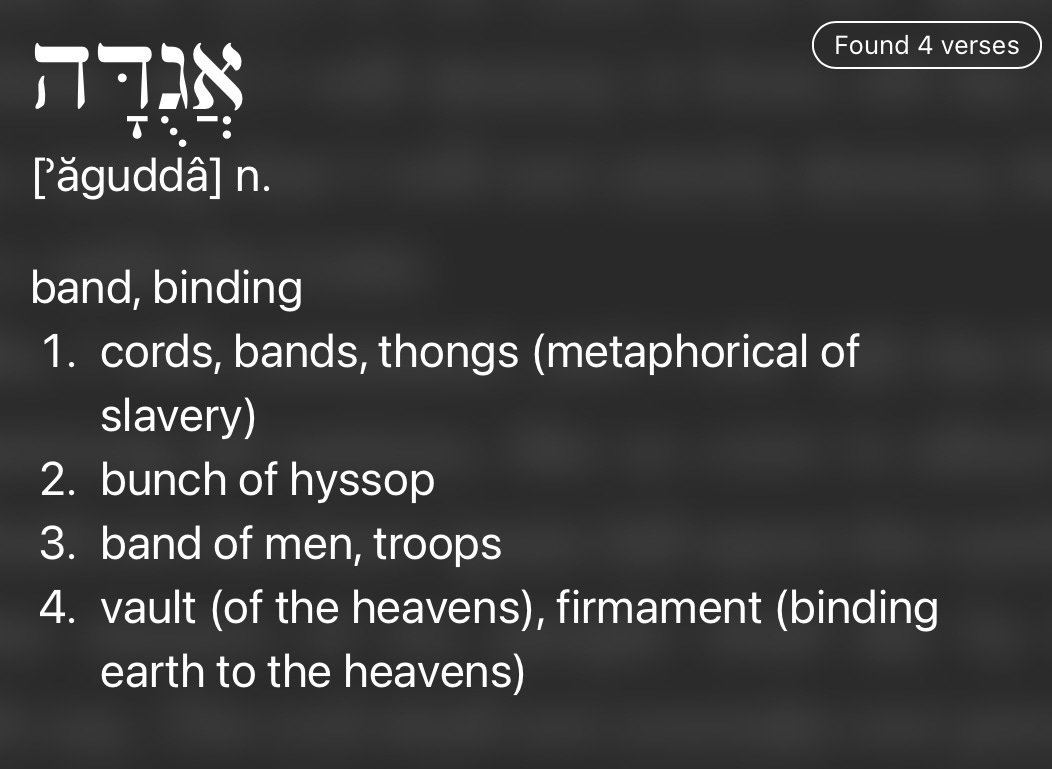
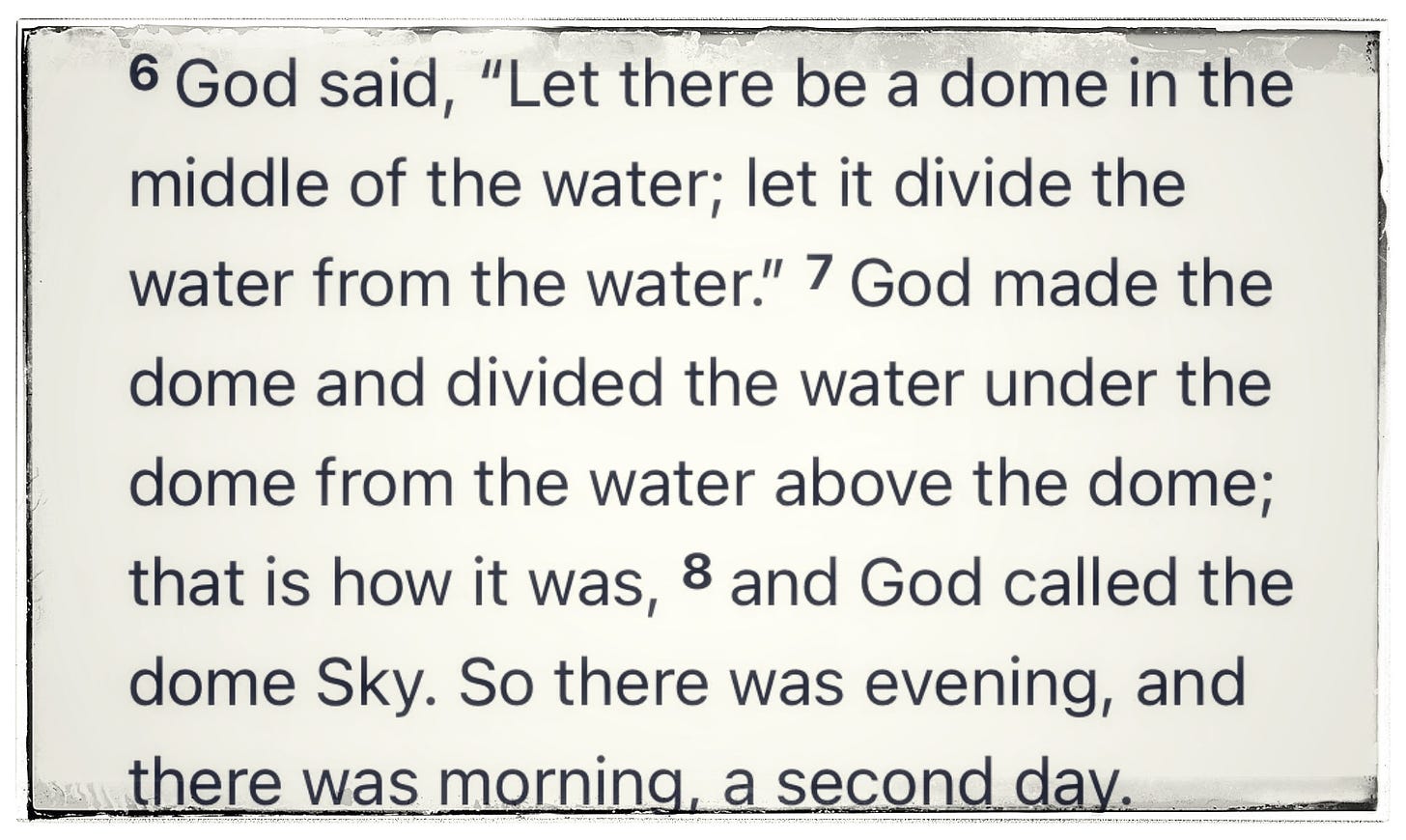


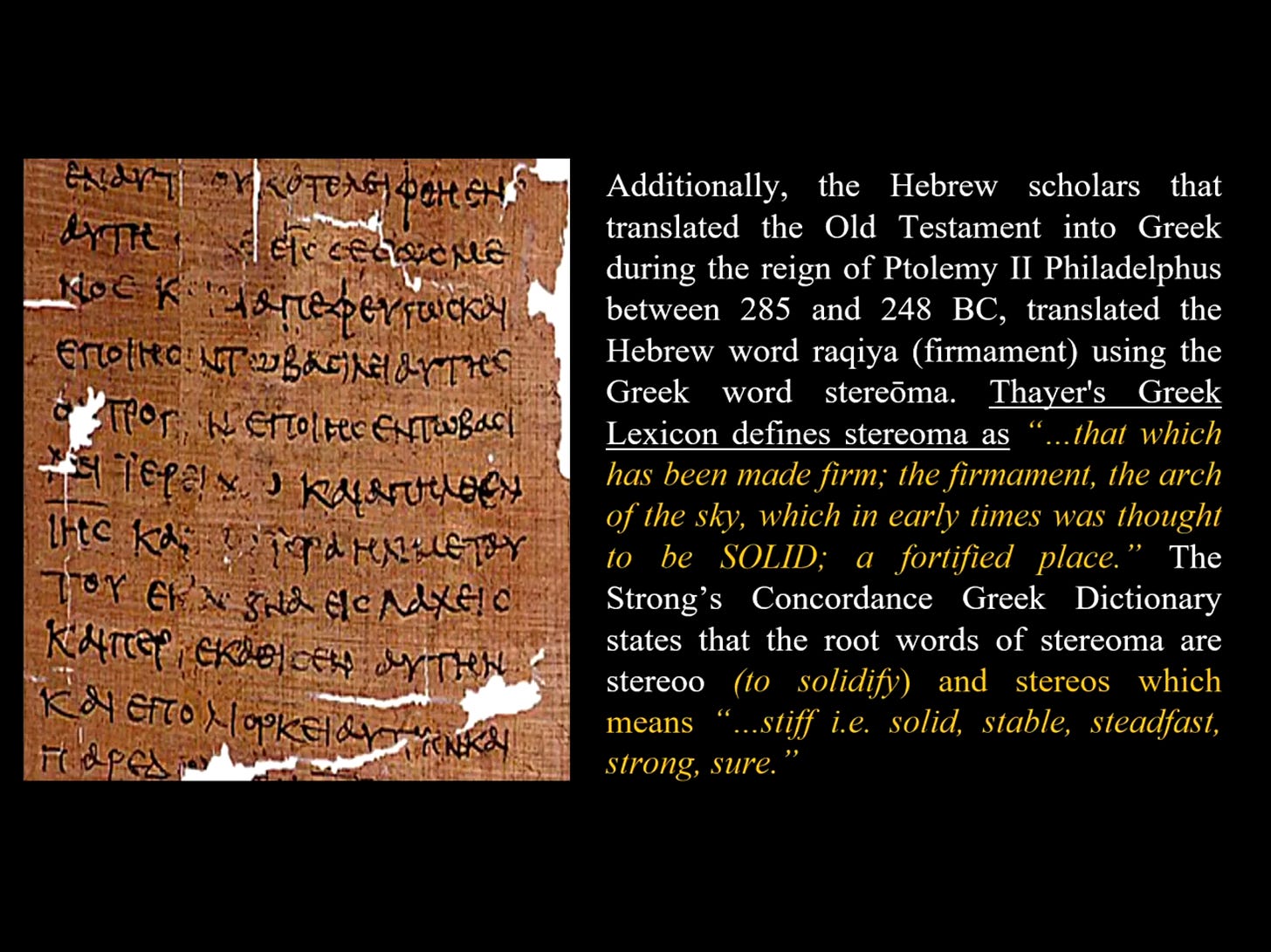
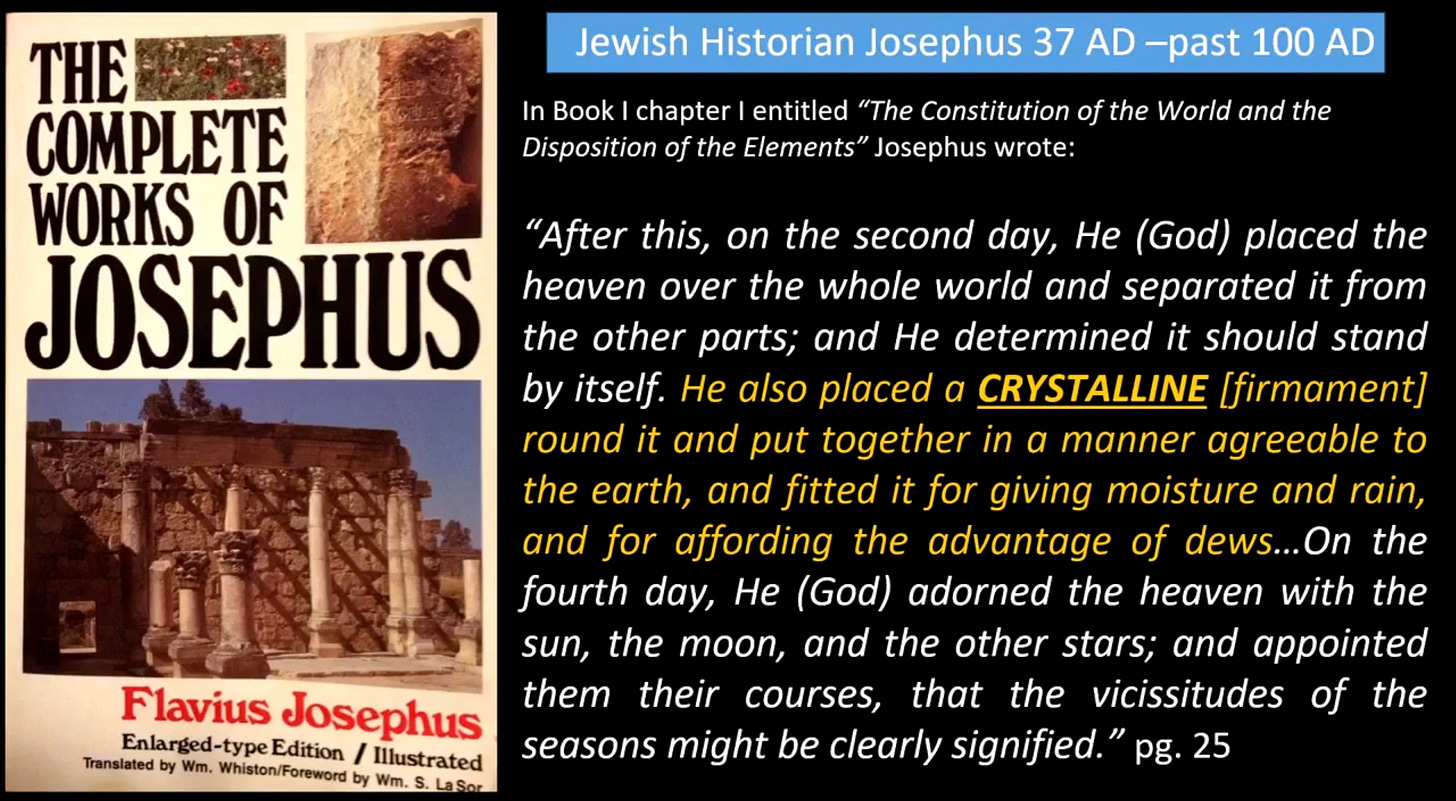
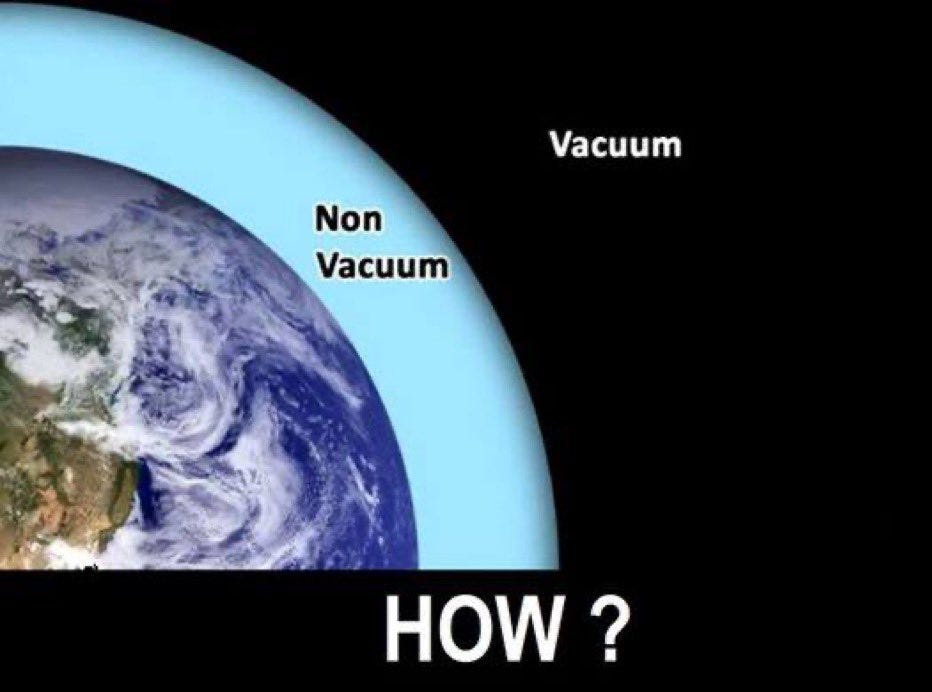
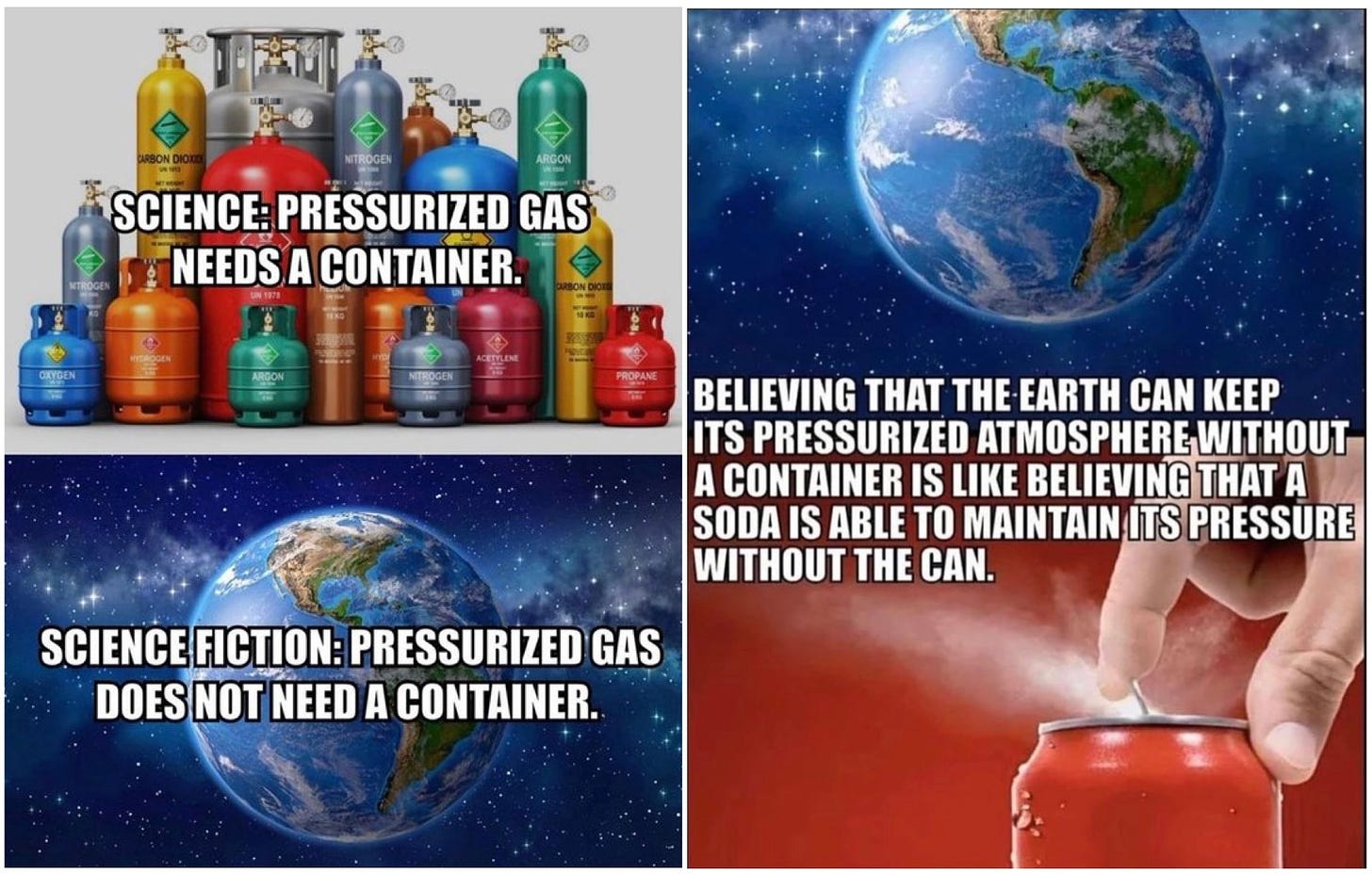
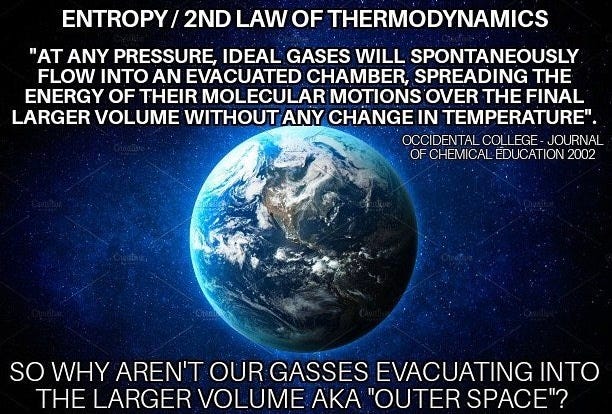
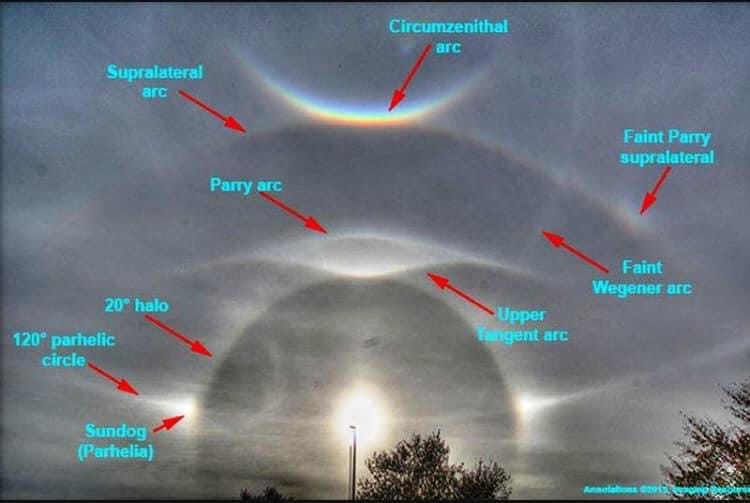
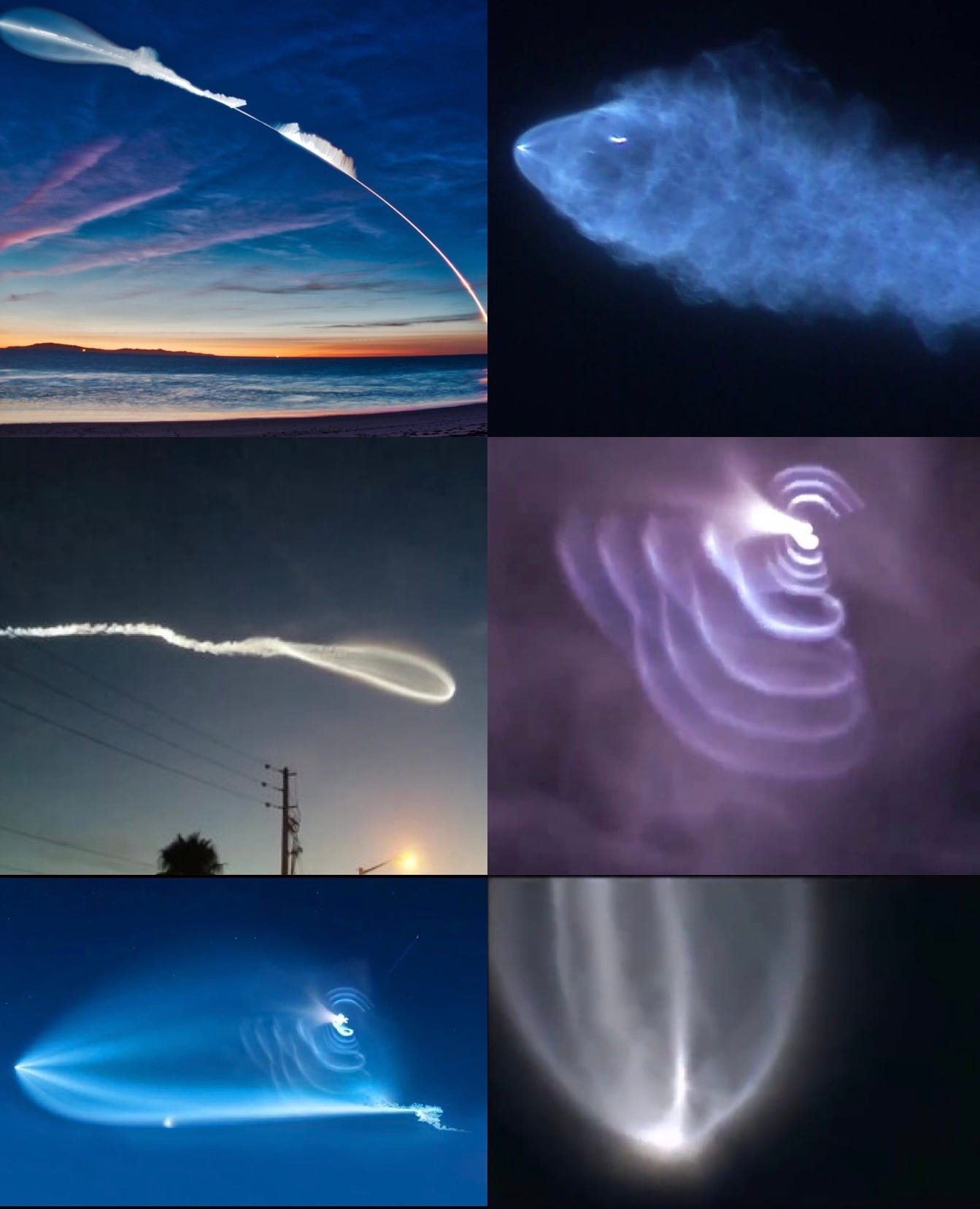
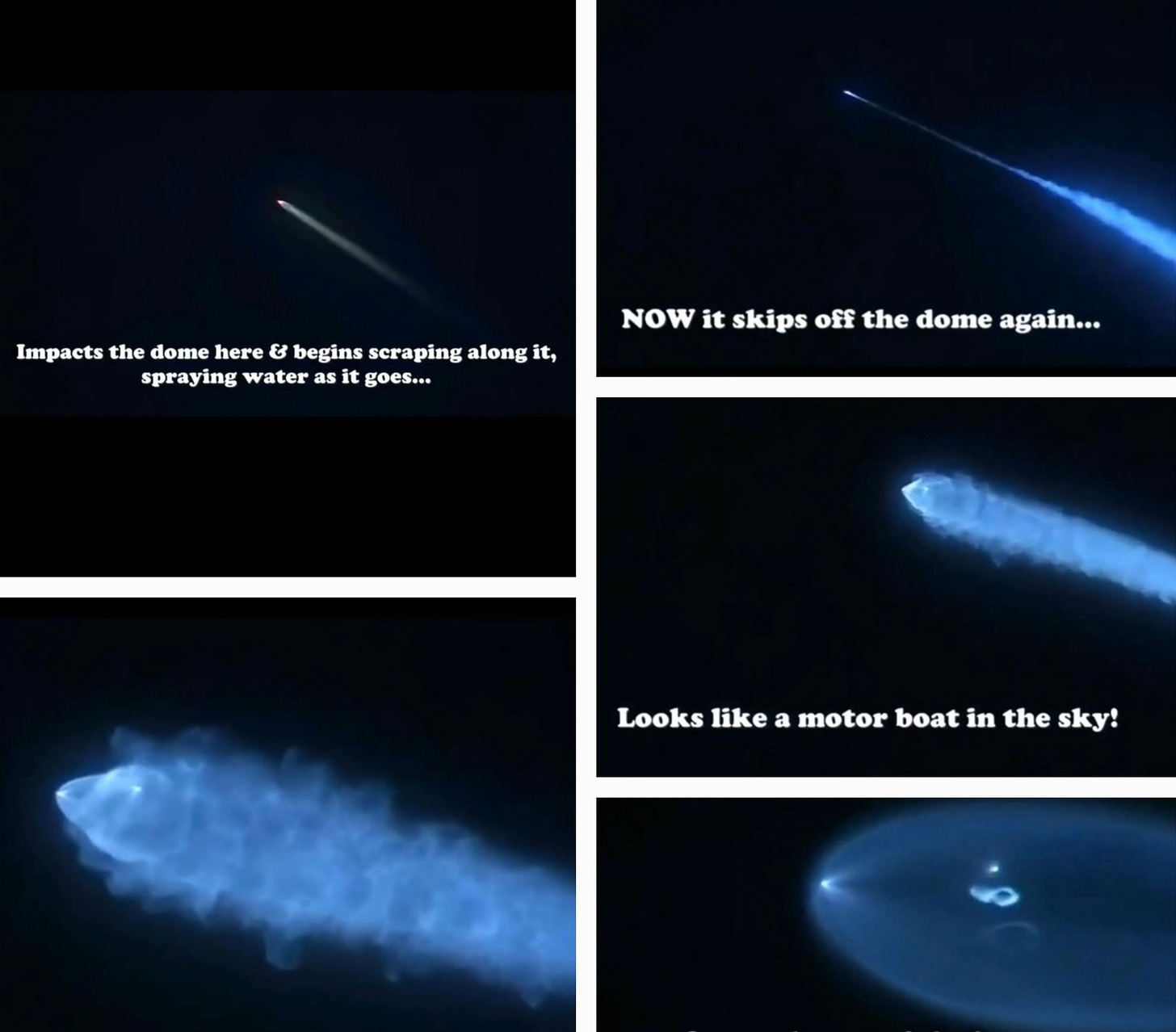

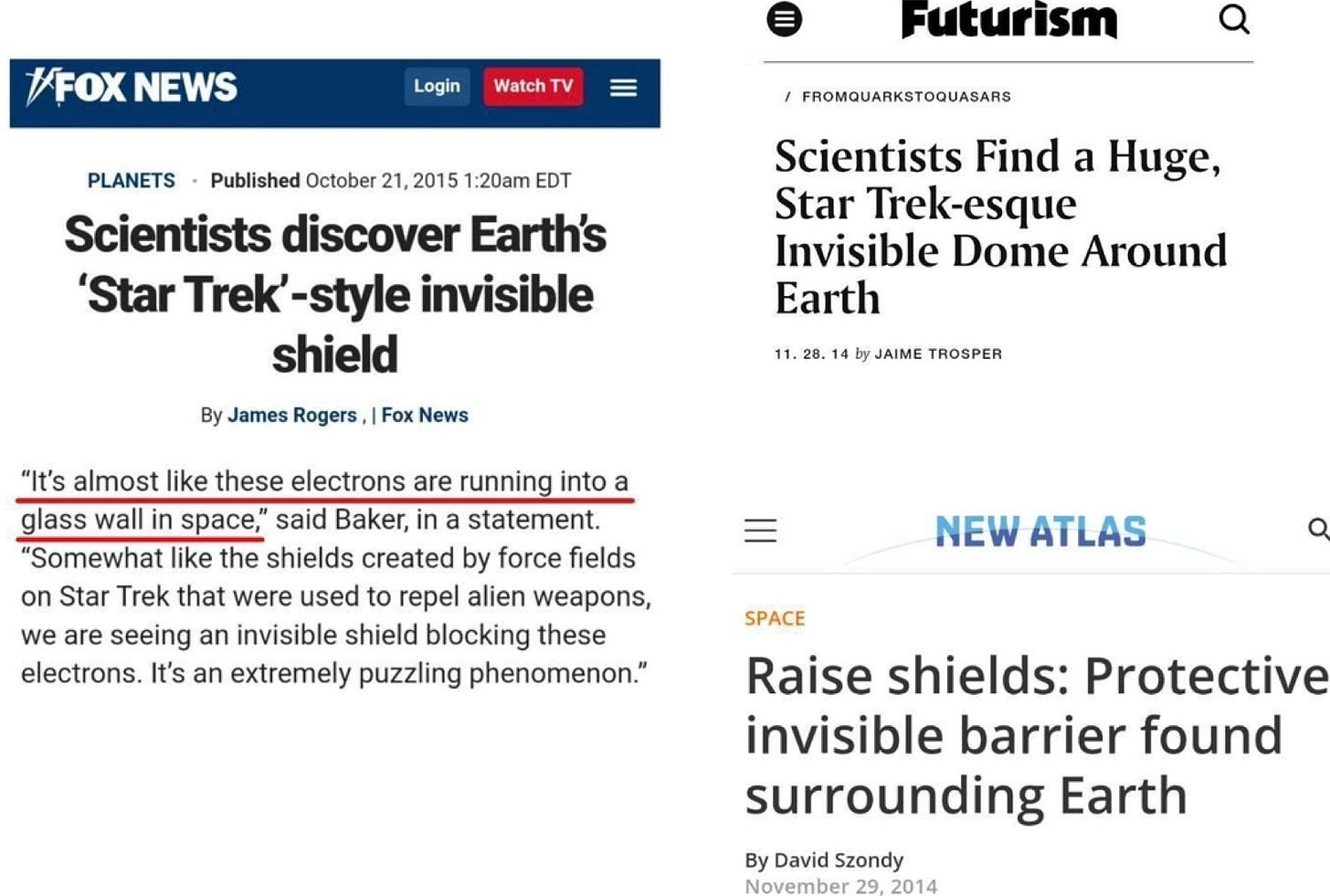
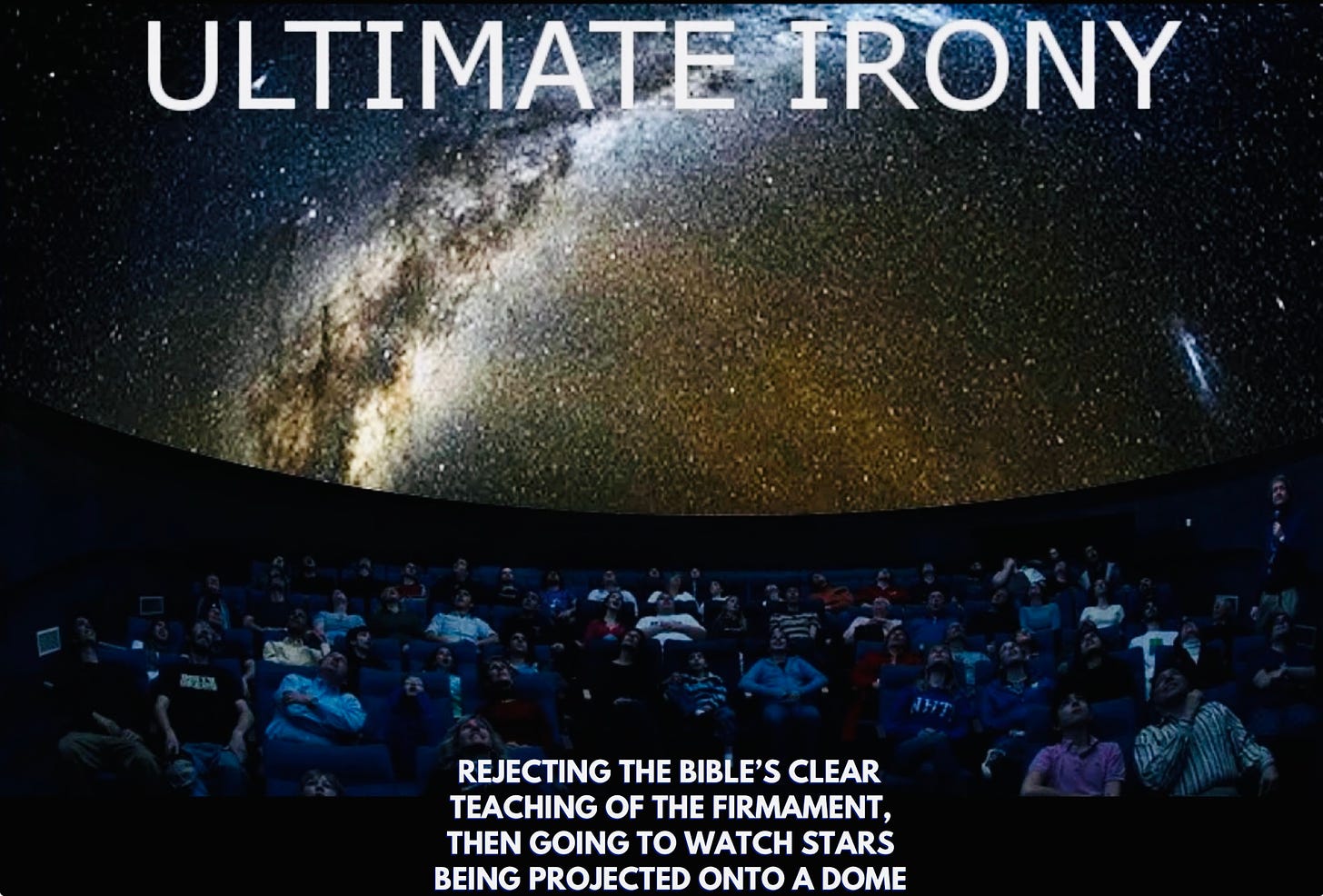




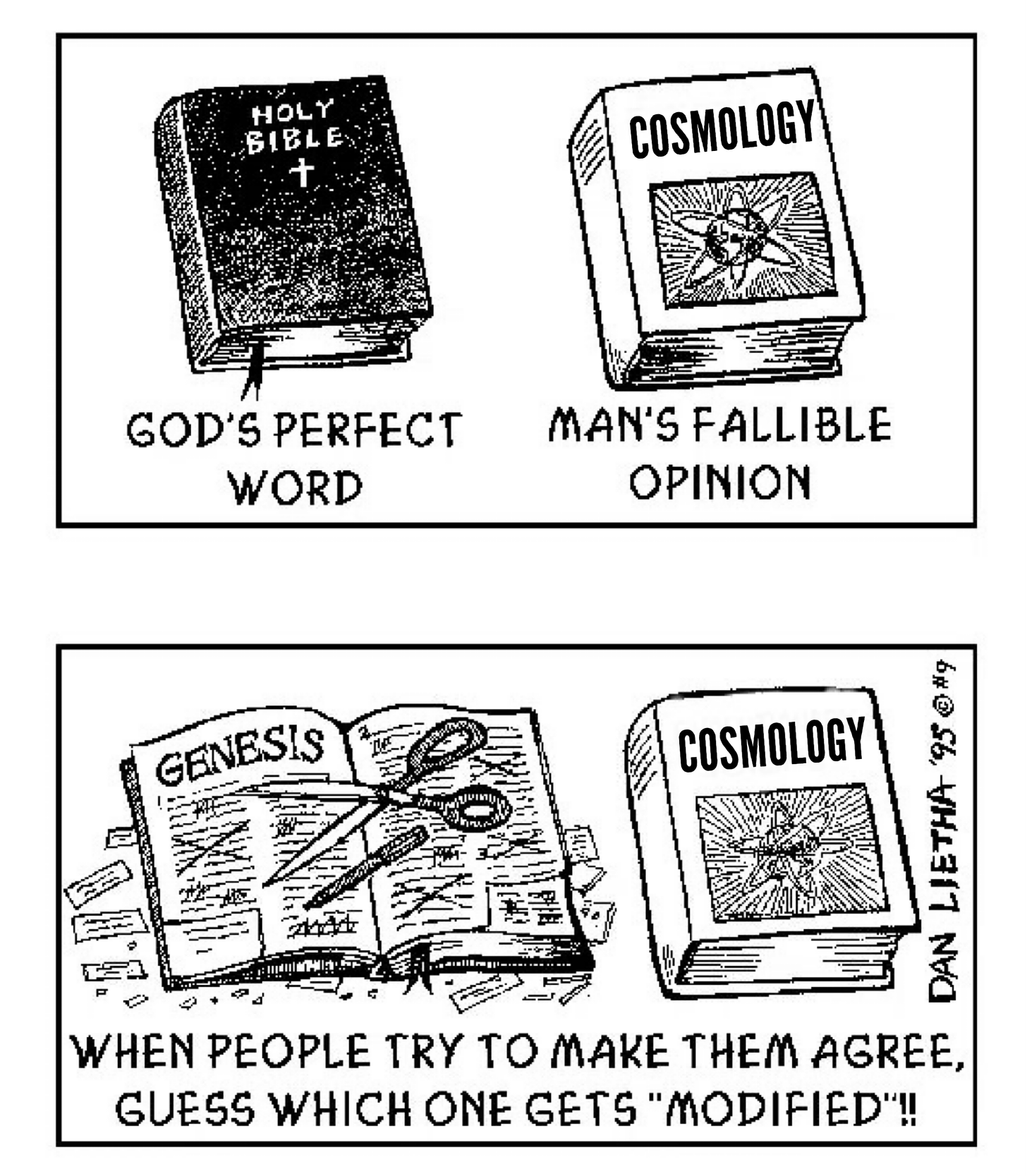


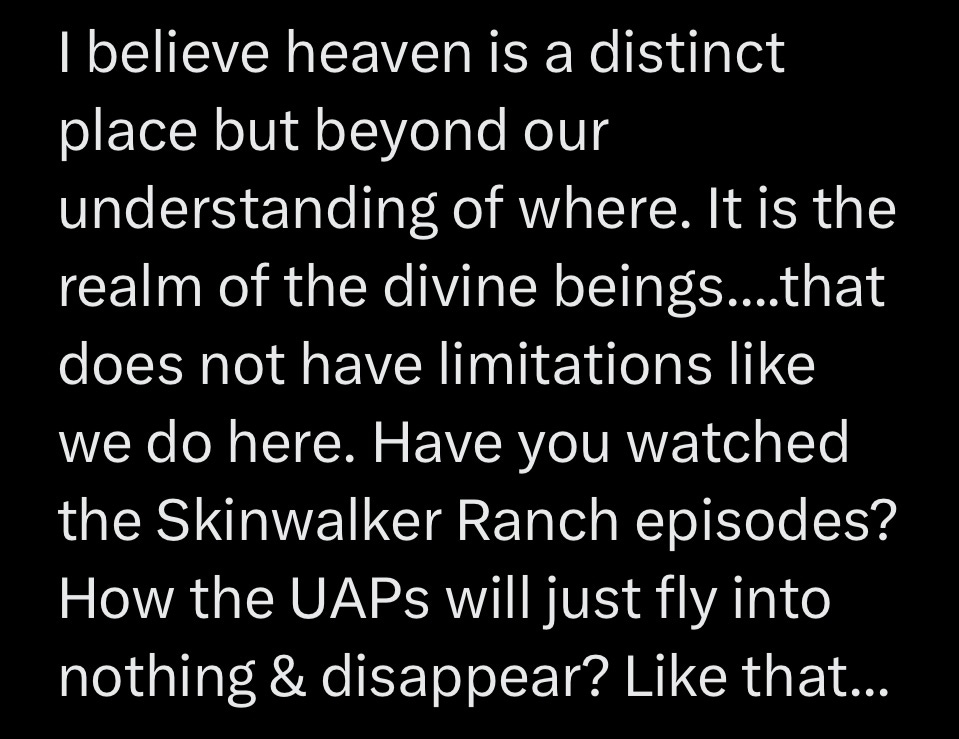




This is a very clear and concise. I agree with what you have stated, and did find a few things that I had not considered. Thank you for your work, KEEP IT UP.
Excellent. Thank you for sharing.